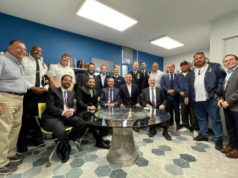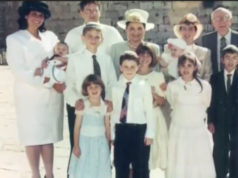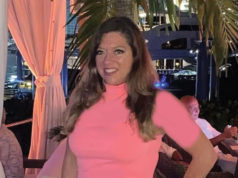
During Maimonides Medical Center’s 14th Annual Cardiac Symposium in December, the Maimonides Cardiac Institute honored Dr. Adrian Kantrowitz, the pioneering surgeon who performed the nation’s first human heart transplant there 40 years ago. Following the tribute, Dr. Kantrowitz spoke about his remarkable career and published research.
“It was an exciting time for cardiac surgeons, though we were not recognized as a sub-specialty for many years,” said Dr. Kantrowitz. “We were tackling many practical problems in the OR, as well as dealing with controversial questions that still resonate in our society.”
The first obstacle, from the public perspective, was the question of timing: When is it appropriate to remove the donor’s heart? The clinical and legal definition of death was still evolving. To complicate the issue, the earliest cardiac surgeons had to overcome the widely held belief that the heart was unlike other organs—that it was unique to each individual, dictating personality traits. Many who approved of other types of transplant surgery believed that heart transplantation was unethical.

In spite of these and other challenges, and after many years of research and one previous attempt, Dr. Kantrowitz transplanted the heart from an anencephalic infant into the chest of a baby with an otherwise fatal heart defect on December 6, 1967. Although the young patient died six hours later, the surgery was hailed as a major medical breakthrough, demonstrating the feasibility of future heart transplant surgeries.
“Dr. Kantrowitz’s contributions to our knowledge of the workings of the human heart continue to influence today’s most important advancements,” said Dr. Jacob Shani, Chair of the Maimonides Cardiac Institute. “We are honored to have him return to Maimonides, the site of a seminal event in American medical history.”
Among his many other achievements, Dr. Kantrowitz created an implantable auxiliary ventricle and the intra-aortic balloon pump. His research contributed to the development of an early pacemaker, and he was first to demonstrate computer-controlled neurostimulation to produce leg movement in paraplegics. Dr. Kantrowitz also produced groundbreaking film images of the inside of a living heart.
According to Dr. Stephen Lahey, Chief of Cardiothoracic Surgery at Maimonides, “Cardiac surgeons like me proudly stand on the shoulders of innovators like Dr Kantrowitz. Millions of people, for whom cardiac surgery is now commonplace and routine, reap the rewards of his life and passion.”

The Cardiac Symposium at Maimonides featured presentations on such topics as thoracic endographing and intra-operative MRI-guided cardiac surgery. Organized annually by Dr. Rubin Berlinerblau, Chair of Continuing Medical Education at Maimonides, the symposium brings together local, national and international cardiac experts to explore the latest advances in the field. In addition to Drs. Berlinerblau, Shani and Lahey, the Maimonides cardiac faculty includes Dr. Joseph Cunningham, Chair of Surgery and Dr. Edgar Lichstein, Chair of Medicine.
This year’s symposium featured reports of cutting edge treatments by some of the most prominent clinicians in their respective fields. Dr. Arthur Moss from the University of Rochester explored “Saving Lives with Electrical Device Therapy.” Dr. Corrado Vassanelli from the University of Verona in Italy discussed the challenges of treating Acute Coronary Syndrome. Dr. Grayson Wheatley of the Arizona Heart Institute explained non-invasive methods in the treatment of aortic aneurysms. And Dr. Keith Horvath, the Chief of Cardiovascular Research at the National Institutes of Health, provided video footage of MRI-guided replacement of the aortic heart valve.
Maimonides Medical Center is among the largest independent teaching hospitals in the nation, training over 450 medical and surgical residents annually. Widely recognized for its major achievements in medical technology and patient safety, Maimonides has 705 beds and over 70 subspecialty programs. Its Cardiac, Stroke and Critical Care divisions are rated among the best in the nation. For more information on the innovative programs at Maimonides, visit their website at www.maimonidesmed.org.



